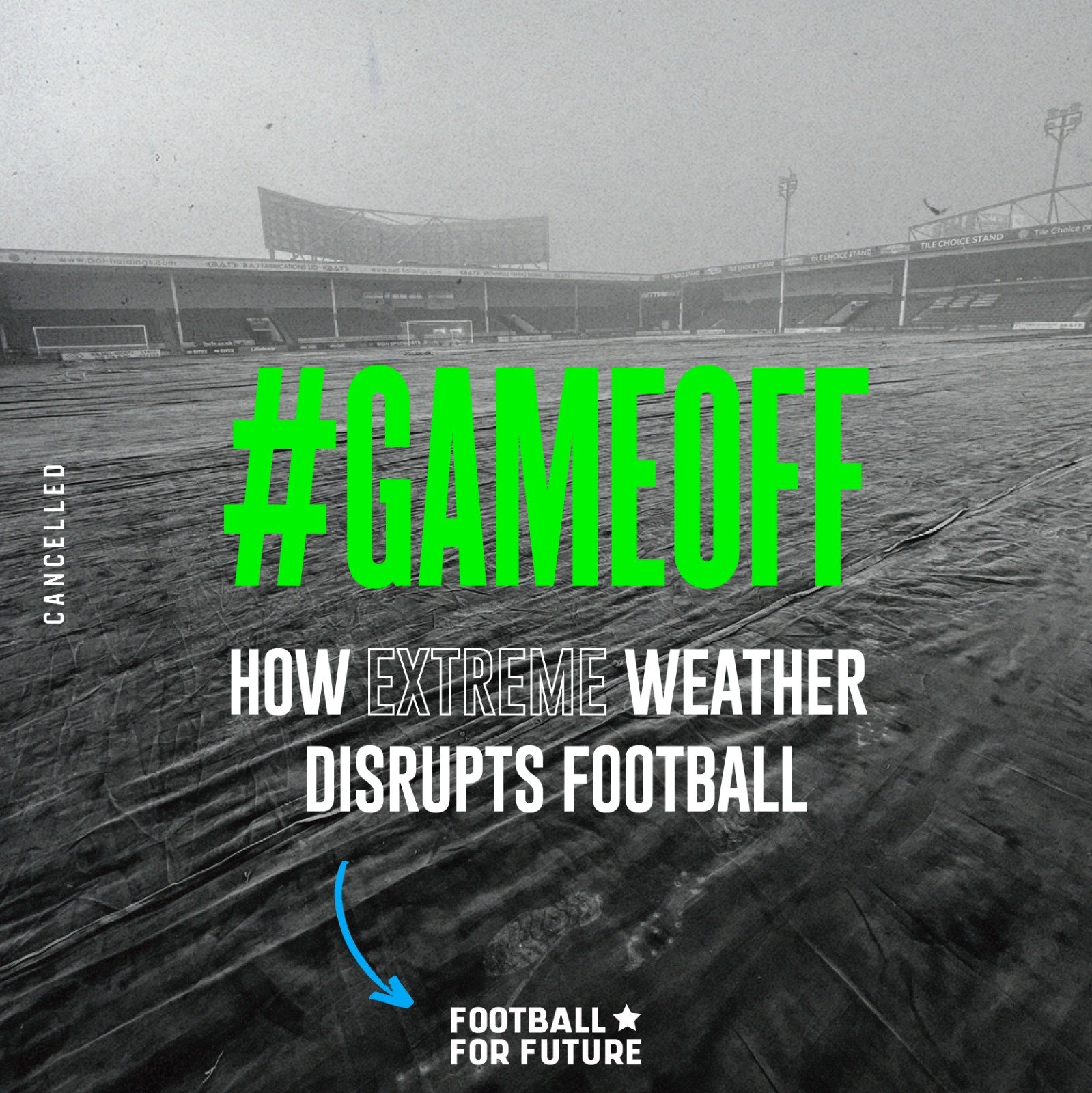Over 60 matches called off due to frozen pitches in January cold snap (2023)
FFF research has identified at least 60 matches across the English football pyramid postponed due to freezing weather conditions in the penultimate gameweek of January (21st, 22nd, 23rd, 24th).
Scores of games across non-league and junior levels were also cancelled.
Although cold weather is to be expected in January, climate change has been shown to increase the likelihood of extreme weather events, and extreme wither weather events specifically.
In the aftermath of Green Football Weekend, these cancellations highlight how vulnerable English football is to extreme weather, as well as the inequality of impacts across the English football pyramid.
Some pitch inspections called off games well in advance while others were abandoned shortly after the start:
Women’s Super League - Chelsea vs. Liverpool
Chelsea’s Super League clash with Liverpool was controversially called off six minutes after the match started due to unsafe pitch conditions. Chelsea’s Erin Cuthbert took to Twitter shortly after to express her frustrations and apologise to fans who had made the journey to watch the match.
Southern League - Frome Town FC vs. AFC Totton
Club manager Neil Simon’s side had already arrived at Snow’s Stadium when it was clear that the rock hard playing surface could not be salvaged in time for kick off.
League Two - Walsall vs Swindon Town
Walsall’s Poundland Bescot Stadium looked like a tundra in the early hours of the morning when it was decided that their League Two matchup with Swindon Town would be postponed.
League One - Exeter City vs. Barnsley
Exeter City made the most of their cancelled matchup with Barnsley by giving away pies and pastries for free at their adjacent pub.
League Two - Sutton vs. Crawley Town
Volunteers and staff weren’t enough to save the pitch from freezing over and cancelling Sutton’s clash with Crawley Town.
It may not come as a surprise to some to see the number of cancelled matches grow higher the further down the ladder you go.
The logic is clear, the further down the ladder, the less resources clubs will have to maintain their playing surfaces in the wake of extreme weather events.
With many WSL and Women’s Championship clubs ground-sharing with lower division men’s sides, it adds another level of hardship to areas of the game already struggling with hardships outside of climate change.
Further research is required to fully understand the impact of the penultimate gameweek (21/22/23/24) of January on English football. This blog is just a snapshot.

